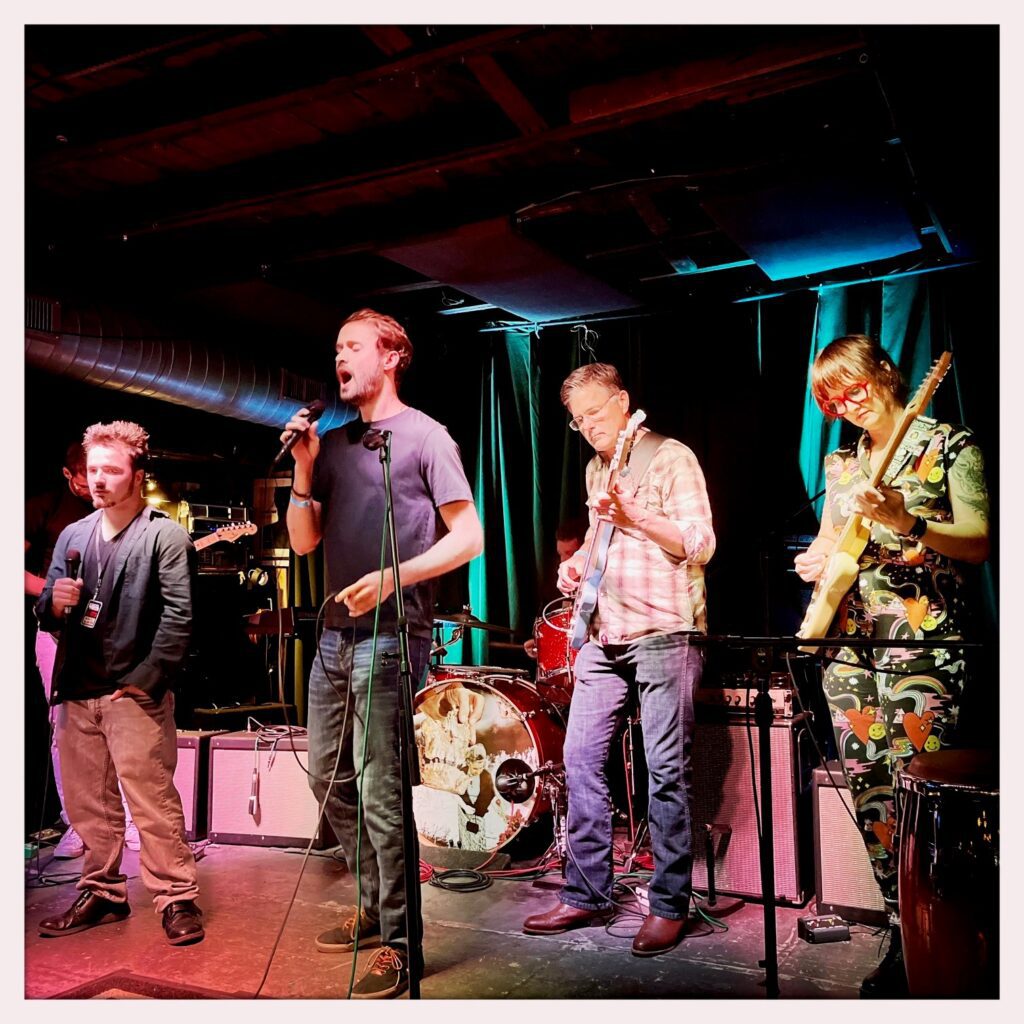
Listening
“One of my regrets in life is that I never learned to play a musical instrument.”
I made this comment to my daughter Meredith following one of her performances with her bandmates, a group of teenagers who write and perform music as students at Austin’s School of Rock.
Meredith is a talented singer, and anytime I experience her and her peers performing, I’m not only profoundly appreciative of their talent, but I am also moved by their earnestness, vulnerability, and courage, not to mention their example to those who aspire to learn new things and share something joyful with others. I have the same experience when watching my daughter Holly stunting in cheerleading or playing basketball.
“Dad, it’s never too late to learn something new,” Meredith replies, “What instrument would you want to play?”
“Bass guitar,” I say, “I think it would be cool to learn the bass.”
Meredith proceeds to tell me about a class for inexperienced musicians at the School of Rock—a class called Rock 101.
“Dad,” she says, “You don’t need any experience. They teach you everything from the beginning, and in a few months you’ll be performing with other people who started learning to play when you did.”
“That’s great to know, Mer,” I say, “I’ll think about it, but you know how busy I am, and I have to travel a good bit with work, and…”
“Dad,” she says, “When you finish with the excuses, you really should check it out. You can try it and see what you think. That’s the way the program works. And besides, you always tell me to pursue my goals, my dreams. ‘Meredith, your only obstacle to doing this is you,’” she says, mimicking my voice.
I look at her. She looks back at me with an expression that’s half a smile and half a smirk.
“You should learn to play bass,” she says. I’d love to hear you play. And, we could even perform together someday!”
Tuning
Just over three months later, on a Sunday afternoon, I stand on a small stage with five of my bandmates. We are at The 13th Floor in Austin, a small bar and music venue, and we’re playing the handful of songs we have learned in our Rock 101 class. The songs range from Green Day’s “When I Come Around,” to the Go Go’s “We Got the Beat,” to Cream’s “Sunshine of Your Love,” which is my favorite song on the setlist. I sometimes watch YouTube videos of Cream to see a young Jack Bruce playing the bass, his face conveying his joy.
More than six years have passed since that Wednesday morning when, at the age of 48 and with two young children, I heard my neurologist, who would become my friend, speak the 16 words that changed my life, “What worries me is that I think you are in the early stages of Parkinson’s disease.”
In those six years, I have had the great privilege of speaking with people about my experiences and sharing my thoughts about how best to live well with Parkinson’s despite its challenges. I have also had time to notice and reflect on what Parkinson’s can give, even as it continues to take.
Playing
When asked by those who are just starting on their own Parkinson’s road (or by those who love them) for advice on how to cope, manage, and ultimately, live with this illness, here’s part of what I tend to say.
Dare to keep dreaming.
Stay focused on your goals and formulate new ones.
Your life isn’t over.
Whatever else you do, do not delay the pursuit of what matters to you.
Risk failing at something that’s meaningful, exciting, interesting, or fun.
We don’t know what lies over the horizon.
We cannot predict how well our health will hold up as we age.
We have a lot less time than we often assume—whether we live with a chronic illness or not.
Listen for the ticking clock and make it your friend. It can help you appreciate and enjoy life in ways you’ve never imagined possible.
Riffing
Standing on the stage and riffing with my bandmates, I’m due for my next dose of carbidopa/levodopa, my fingers beginning to labor as they press the strings against the fretboard.
I look out in the audience and spot my wife Tracey and our girls. They have come to watch us newbies perform. Holly is pumping her fist in the air as she records our set with her phone. Meredith is singing along with us and swaying. Tracey is smiling in a way that only someone who understands you deeply, intimately, can smile.
Channeling my inner Jack Bruce, I smile back at them, hit the last note of “Sunshine of Your Love” on the A string, and begin thinking about what songs Meredith and I can perform together.
__________
Allan Cole is Dean of the Steve Hicks School of Social Work at The University of Texas at Austin, where he also serves as the Bert Kruger Smith Centennial Professor in Social Work and, by courtesy, as Professor of Psychiatry and Behavioral Sciences at the Dell Medical School. Diagnosed with Parkinson’s in 2016, at the age of 48, he is the author or editor of more than a dozen books on a range of topics related to chronic illness, bereavement, anxiety, and spirituality. His latest books are Discerning the Way: Lessons from Parkinson’s Disease (Cascade), In the Care of Plenty: Poems (Resource Publications), and Counseling Persons with Parkinson’s Disease (Oxford University Press). Follow him on Twitter @allancoleut. His next two books, Jumping to the Skies: Additional Lessons from Parkinson’s Disease (Cascade, 2023) and Riding the Wave: Poems (Resource Publications, 2023) will be published soon.
